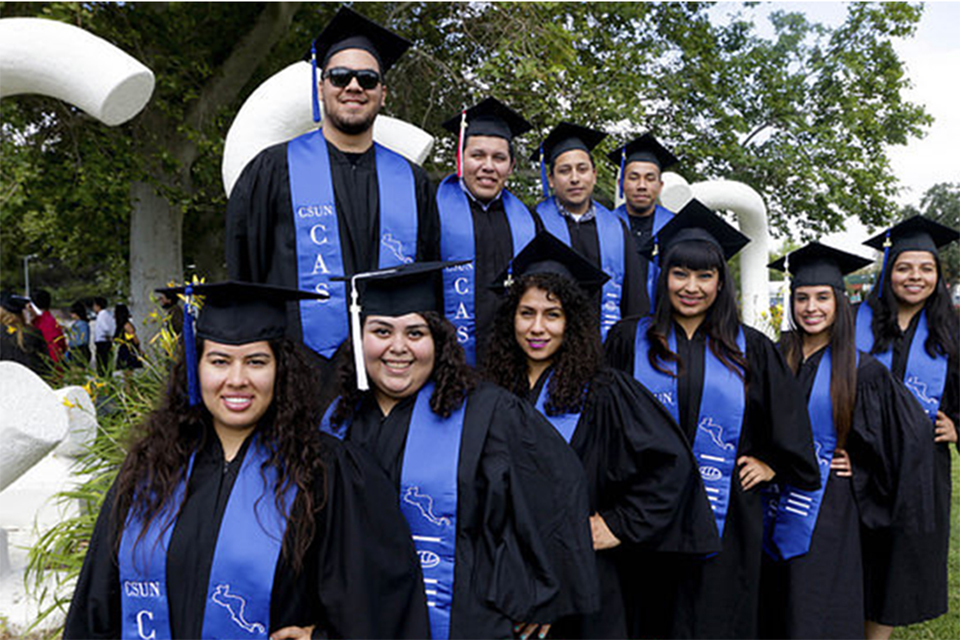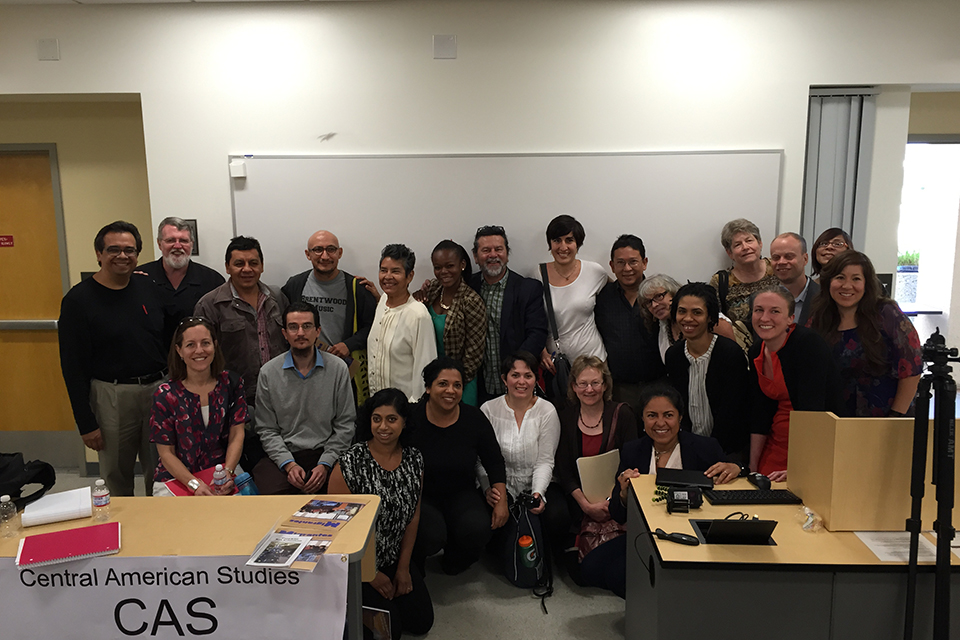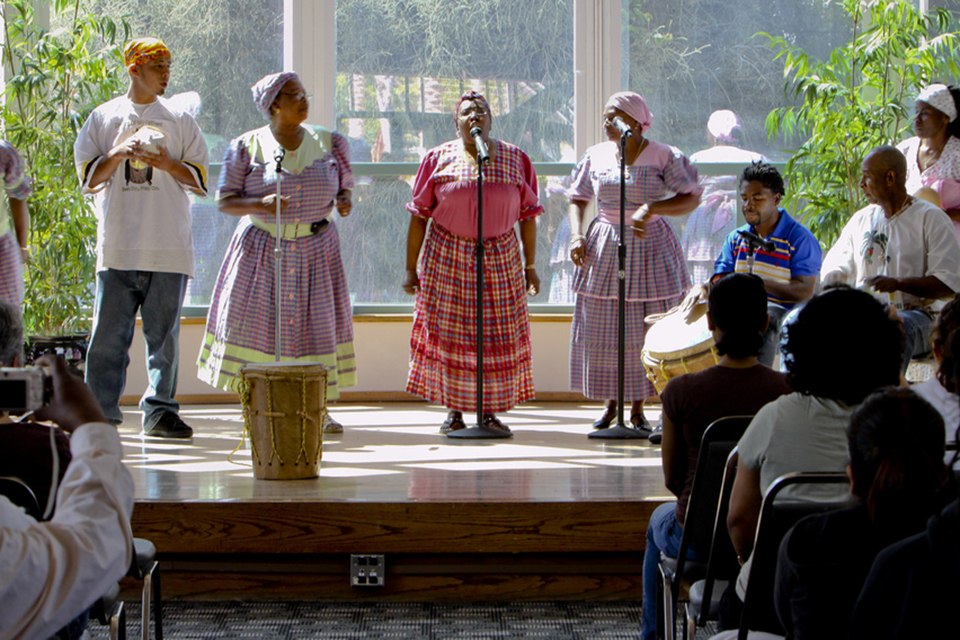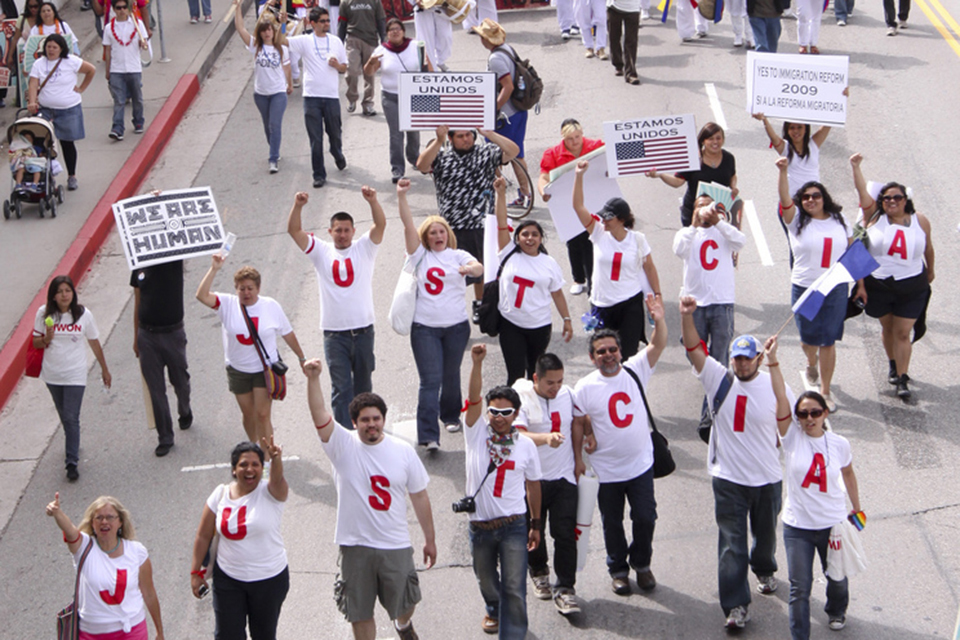CSUN Establishes Nation’s First Department of Central American Studies
California State University, Northridge, one of the most diverse universities in the nation, has approved the creation of the first Department of Central American Studies in the United States.
The department, which was established 15 years ago as a program at CSUN, was approved for elevation to department status earlier this year as a sign of the university’s commitment to Central American studies as a discipline, and to empower the estimated 2.5 million Central Americans living in Southern California.
“It’s a pretty stunning accomplishment, made possible by faculty committed to making it happen,” said Elizabeth Say, dean of the College of Humanities, which is also home to the Departments of Chicana/o Studies and Asian American Studies. “We have a commitment as a campus to making CSUN regionally relevant.”
CSUN can now add Central American studies to its list of departments that represent the diversity of the region. The longstanding departments of Africana Studies and Chicana/o Studies were among the first in the nation when they were organized more than four decades ago. CSUN also offers other major and minor options in programs such as Armenian, Asian American, American Indian, Jewish, Middle Eastern and Islamic and queer studies.
The Central American studies program was established in 2000 to recognize the large and growing Central American community in the United States. Thousands fled the political turmoil and violence in Guatemala, Honduras and El Salvador in the early 1980s for safety and new lives in the U.S. CSUN has one of the largest populations of Central American students in the country, with nearly 4,000 students born in Central America or with immigrant parents. Most of the students are Salvadoran or Guatemalan.
“Central America as a region is economically, politically and culturally very important to the United States and vice versa,” said Douglas Carranza, chair of the department.
He said the department has a trifold mission: to empower the large and growing Central American community in the U.S. by promoting academic excellence, community involvement and cultural diversity; to open spaces of global citizenship and dialogue between academia and society that contribute to the construction of a Central American identity; and to promote an understanding and appreciation of the diverse Central American cultures, ethnicities, experiences and worldviews from an interdisciplinary, global perspective.
Ravi Perry, president of the National Association for Ethnic Studies, said CSUN’s creation of a Department of Central American Studies is a milestone.
“The contributions of Central Americans and Central American heritage, culture and community to a diverse learning environment in higher education is finally receiving the academic program imprint that many have fought for, for decades,” said Perry, a political science professor at Virginia Commonwealth University.
Beatriz Cortez, a founding faculty member, said the CSUN department has worked hard to fulfill its mission — graduating 128 students with bachelor’s degrees in Central American studies who have gone on to become educators, journalists and lawyers. The department also has offered opportunities to work in the community, including volunteering at Los Angeles’ Central American Resource Center, and it has offered a selection of more than 40 interdisciplinary courses — including Survey of Central American Literature, Central American Film, Afro-Caribbean Central American Cultures and Identities, and Culture and Violence in Central America.
“Creating this new disciplinary space is a great contribution to academia,” Cortez said. This fall, approximately 1,150 students enrolled in the new department’s classes, including 53 students who are declared majors and double majors.
She said the department does not see itself only as an ethnic studies program.
“For us, our program is completely new, not only because of its interdisciplinary nature but also because it is truly a transnational program,” Cortez said.“Central Americans are of multiple ethnic and racial groups.”





 experience
experience